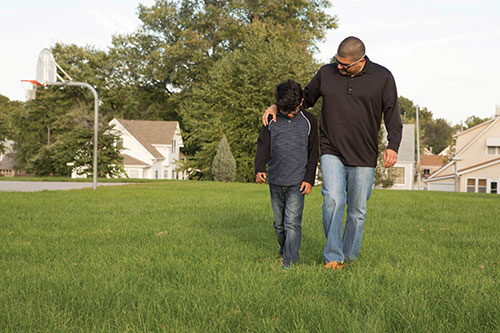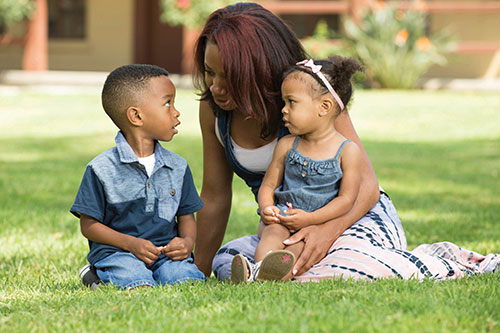Dealing with the Impact of Divorce
 Approximately half of all marriages end in divorce. Considering this statistic, countless children are impacted when their parents divorce.
Approximately half of all marriages end in divorce. Considering this statistic, countless children are impacted when their parents divorce.
Some areas of children's lives that are affected include where they live, what school they attend, what types of activities they can participate in and their relationships with friends and family members.
Despite these changes, most children whose parents divorce are well-adjusted, and it helps when they can continue to have regular time with both parents.
This is often a difficult time for parents and children alike. But there are steps parents can take to minimize the impact of their divorce on their children.
 Here are some tips for how you can help your children, and yourself, through this transition:
Here are some tips for how you can help your children, and yourself, through this transition:
-
Rely on friends and family for the support you'll need.
-
Avoid dating for several months following the separation to give you and your children time to adapt to the changes.
-
Avoid arguing with or speaking negatively about the other parent in front of your children. Schedule times to talk to your ex-spouse when the children aren't present.
-
Communicate with your ex-spouse to make necessary plans and arrangements. This is not your child's responsibility.
-
Let your children be children. Don't place adult responsibilities on them or confide in them as though they were adults.
-
Financially support your children to maintain their standard of living.
-
Have consistent rules and routines for your children when they are in your home.
-
Consider mediation, which involves parents working with a neutral third party to assist with negotiations. Mediation is associated with better outcomes for children and families, when compared to court involvement.
Additional Resources
There are number of supports available to help you and your children through these changes.
- A good parenting resource on this topic is Dr. Robert Emery's book,
The Truth about Children and Divorce: Dealing with the Emotions So You and Your Children Can Thrive.
If you notice drastic behavioral or emotional changes in your child, consider contacting his or her school counselor or asking your child's physician for a referral to a mental health professional.
Download Printable Version
Kid Tips;Family and Parenting
